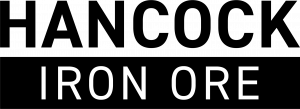In a country where a beef breeder is so prized she sleeps in the family home and…
In a country where a beef breeder is so prized she sleeps in the family home and the sale of just one calf would double a family’s annual income, one humble Australian charity is making big inroads in addressing poverty.
It’s not via handouts that Cows for Cambodia is making a difference, it’s via a hand-up.
The biggest helping hand is just about to be made – high-quality Australian Brahman genetics.
Television personality Andrew Costello, of South Aussie with Cosi fame, set up the charity after a holiday in Cambodia three years ago.
He calls it a cow bank.
Cambodian families are loaned an in-calf breeder, a high Bos Indicus-content local animal purchased by the charity, and they sign a contract to feed and look after her until the calf is born, which they then keep as payment.
The breeder then goes back in calf and moves onto another family.
Cosi says families pray to the cow’s stomach for a heifer, which allows them the means to an ongoing good income.
The charity has 60 cows in its herd, each purchased in Cambodia for around US$650. They are around the size of a Jersey cow and genetically inferior to Australian beef breeders.
The purchase of 150 Brahmans from Kidman Springs Research Station in the Northern Territory, all pregnancy-tested-in-calf or with calf at foot, is about to significantly ramp up the beef production ability of Cambodian families who have earned their calf.
“Those genetics will be our best gift of all,” Cosi said.
“They are expected to settle into the environment well and, coming from a Northern Territory government facility, they have been handled a lot so are perfect for the job.
Andrew Costello vaccinates one of the cows in his Cambodian charity. PHOTO: Cows for Cambodia.
“The much larger frame and ability to produce a calf that will grow faster will be a big improvement to Cambodia’s beef production.”
Mining magnate turned beef producer Gina Rinehart has also come to the party, providing feed and agistment free of charge at Hancock Prospecting’s Phoenix Park, Katherine, during the preparation stage for the Australian brahmans headed to Cambodia.
Cosi said the families the charity works with can only afford to eat beef once or twice a year themselves, at special events.
“They produce for the upper end of the Cambodian market and owning a cow is the equivalent of Australians owning a house,” he said.
“Not one of the families has opted to cash out when their heifer calf arrived – they’ve all kept and raised her to breed from every year, so we really are having a big impact on breaking the cycle of poverty.”
Fertility has been a big challenge.
“First, the family has to identify when the cow is on heat, then walk her to the local bull and pay US$10 to mate her,” Cosi explained.
“The bull only serves her once so needless to say, given all that, the low fertility rates nearly buried the charity in the start.
“We tried pre-purchasing matings but when we went back we found the bull owners had sold the bull!”
So Cows for Cambodia put funds it had raised into building a set of yards and buying its own bull and created a system where cows spend two months with the bull.
That has resulted in an 80 per cent improvement in fertility.
A woman walks her cow to receive vaccinations. PHOTO: Cows for Cambodia.
Cosi has now expanded the program to the Philippines and is looking at a similar initiative in South Africa involving goats and a school where students care for and learn about goat production.
Cows for Cambodia is a registered charity, a not-for-profit organisation but Cosi is gearing it up to be a profitable business run by Cambodians.
Within five years, the plan is to have a 1000 head herd, which means the need for donations will be far less.
“We can then take that model to governments who spends billions on aid programs and say there is a better way, a charity that can sustain itself and really break the poverty cycle,” he said.
Cosi, who has a background in agriculture and went to Roseworthy Agricultural College, describes the Cambodian project as the best thing he has done in his life.














